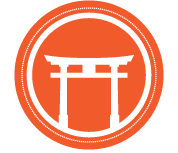Yondan Essay:
The Application of Aikido
in My Daily Life
Inryoku Volume 6 Issue 9
by Josh Paul, AOSB Head Instructor
Introduction
I almost forgot to write this month’s newsletter! Well, I didn’t totally forget. It was just that when I had time, I lacked inspiration, and then it was suddenly September 30! So, I decided to publish my 2014 yondan essay about how I use aikido in my daily life. It was an uplifting and revealing look back. I hope you will find it so, as well.
The Application of Aikido in My Daily Life
I once read that to understand aikido, aikido must be practiced as a lifestyle. I wanted to understand aikido. I still do. And so I set about integrating aikido into my life, so much so that it is difficult for me to explain how I apply aikido to my daily life because aikido is my daily life. There is no separation between training, the dojo, and some other self and life. It is all one. I try to apply the principles of aikido to my relationships, my lingering part-time day job, and the management of my dojo and, in return, the practice of aikido opens the world before me.
Aikido as my daily life is a passport to experiences and connections I would never have otherwise. It is my connection to the larger world of my Brooklyn neighborhood and New York City. Teaching has connected me to hundreds of schoolteachers, children, adolescents, and administrators in the NYC schools. It has connected me to the most affluent and most destitute neighborhoods, as well as fundamentalist religious communities. It has connected me to people as far afield and foreign as Japan and Sweden and Ethiopia. Aikido even makes me think there’s a point to Facebook and social media.
Aikido as my daily life makes me feel everything I’ve done—some great things, some not so great things, and a lot of really just stupid things—were actually important, especially the stupid things. Aikido requires interacting with and teaching people as diverse as the aikido repertoire. Without other experiences, how could I relate to them? The dojo is a microcosm of life and, on the mat, through our techniques, we practice life skills—empathy, concentration, communication, and, sometimes a good hard irimi. The latter is my hardest challenge and practice. It is always strange to me when I hear somebody in a dojo or at a seminar lamenting that they “need to get a life.” To me, if you’re studying aikido, you already have a life.
Aikido as my daily life means emails, learning web and graphic design software, writing and rewriting brochures and websites, trips to Costco, organizing events, and bookkeeping. Aikido as my daily life means crying little boys, snot, farts, and occasionally blood. It means proud parents and empowered young women, and adults applying aikido principles and lessons to their families, careers, and relationships. Always, it is keep one point, and then tenkan, irimi, or both. It is strangers seeking my approval, building one student’s ego while taking another’s down a notch, and trying to be the person I expect my students to be. It means remembering details from the mundane closing of cabinets and turning off the heat, to ensuring next month’s rent is paid, taxes are filed, insurance is up-to-date, and dojo policies are enforced. Enforcing policies, especially when money is concerned, is very awkward and difficult for me, but it has to get done. Aikido as my daily life means going beyond my comfort zone, finding time for seminars and training, and helping and encouraging students without becoming their therapist or social worker. It means being patient, but also learning that losing patience is important, too, and beneficial for students and my own sense of sanity. It means balancing the small annoyances (e.g., coffee cups lying around the dojo) with great achievements (like the dojo’s first shodan exam).
Aikido as my daily life is trying to instill in students my excitement and commitment, which means remembering why I started aikido, why I’ve continued, and what it felt like in the beginning when the class waited and watched as I struggled through a single forward roll. The short version is that training feels good. But the longer version is that training provides a richness and completeness to life that no other career or meet-up group or social media or hobby could ever provide. Aikido is physical, spiritual, intellectual, and a never ending challenge and mystery.



